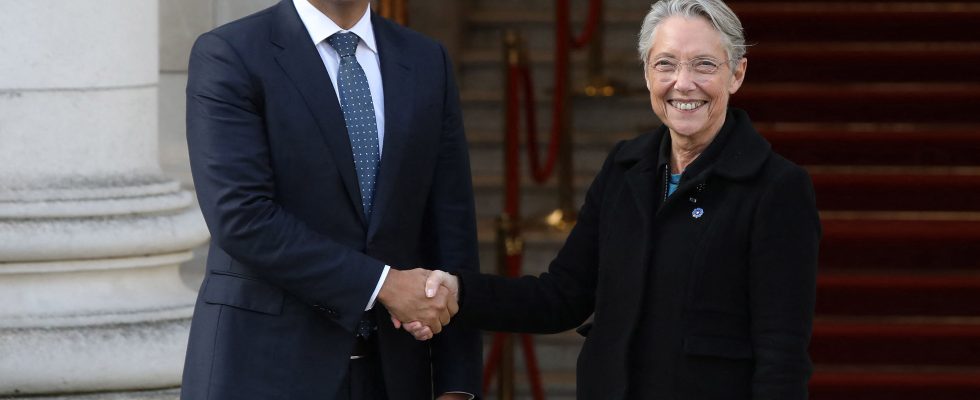Since the start of the year, Franco-French deadlines have forced her to stay in France. But seven months before the European elections, Elisabeth Borne intends to put a foot in the country’s external affairs. And for her first trip abroad in 2023, the head of government flew to Ireland.
In Dublin, where she was received this Monday, November 13 in the afternoon by her Irish counterpart Leo Varadkar, Elisabeth Borne is accompanied by four of her ministers: Laurence Boone, for Europe, Sylvie Retailleau in charge of Education senior, Agnès Pannier-Runacher in charge of Energy Transition, and Jean-Noël Barrot, in charge of Digital Affairs. A capped delegation which must deal with “international issues” and “major European negotiations”, specifies Matignon.
Reform of the European electricity market
On the menu of discussions: enlargement of the European Union, multi-annual financial framework, but also, “major legislation that France wishes to see progress”. First and foremost, the reform of the European electricity market.
At the end of October, the Twenty-Seven managed to find an agreement to limit a new surge in electricity prices, by making them less dependent on the volatility of fossil fuel prices. For the Prime Minister, the stakes are high, with Ireland not among the nuclear enthusiasts despite a neutral position during the discussions.
Underwater electrical connection project in pipes
Like many official trips abroad, this visit to Dublin comes with its share of contracts. The two countries thus intend to ratify the high-voltage underwater electrical connection project between the Celtic island and Finistère.
Named Celtic Interconnector, this 575 kilometer interconnection is intended to connect the Irish network to the European continent by 2027 by connecting the Cork region to that of Brest for the very first time. One way among others to adapt to the consequences of Brexit, almost four years after its entry into force. But also to promote the development of renewable energies while strengthening the security of supply of the two countries.
In addition, on the occasion of the anniversary of the first decade of French Tech, Elisabeth Borne accompanied by her Minister of Digital, Jean-Noël Barrot, will exchange with Irish entrepreneurs, before meeting the French community.
A birthday that brings you closer
Another event on the calendar: a conference on “225 years of aspiration for the Republic” to celebrate the landing of French troops at Kilcummin, who came to support Theobald Wolfe Tone’s Irish rebellion against the British kingdom on August 22, 1798.
The opportunity to bring together the two European countries around a common piece of history. And to recall Republican and European values, the day after the big march in Paris against anti-Semitism in which Elisabeth Borne participated alongside leading political leaders. These values are “not an achievement but a fight”, according to the Prime Minister’s services.
A visit against a backdrop of international tensions
But since his first visit to Ireland in 2018 as transport minister, the international landscape has changed significantly. A new war broke out at the gates of Europe with Russia’s invasion of Ukraine in February 2022. At the beginning of October, the Hamas attack heralded the resurgence of a seemingly endless conflict between Israelis. and Palestinians. In such a context, it is impossible for the two heads of government not to address these two geopolitical crises whose scope goes far beyond the belligerents alone.
Note that on this last point, the respective positions of France and Ireland diverge somewhat. In fact, while Elisabeth Borne declared in the hemicycle of the Palais Bourbon that Israel has “the right to defend itself”, her Irish counterpart estimated at the beginning of November that Israel’s military response to the Hamas massacres on October 7 sounded like “something close to revenge.”
